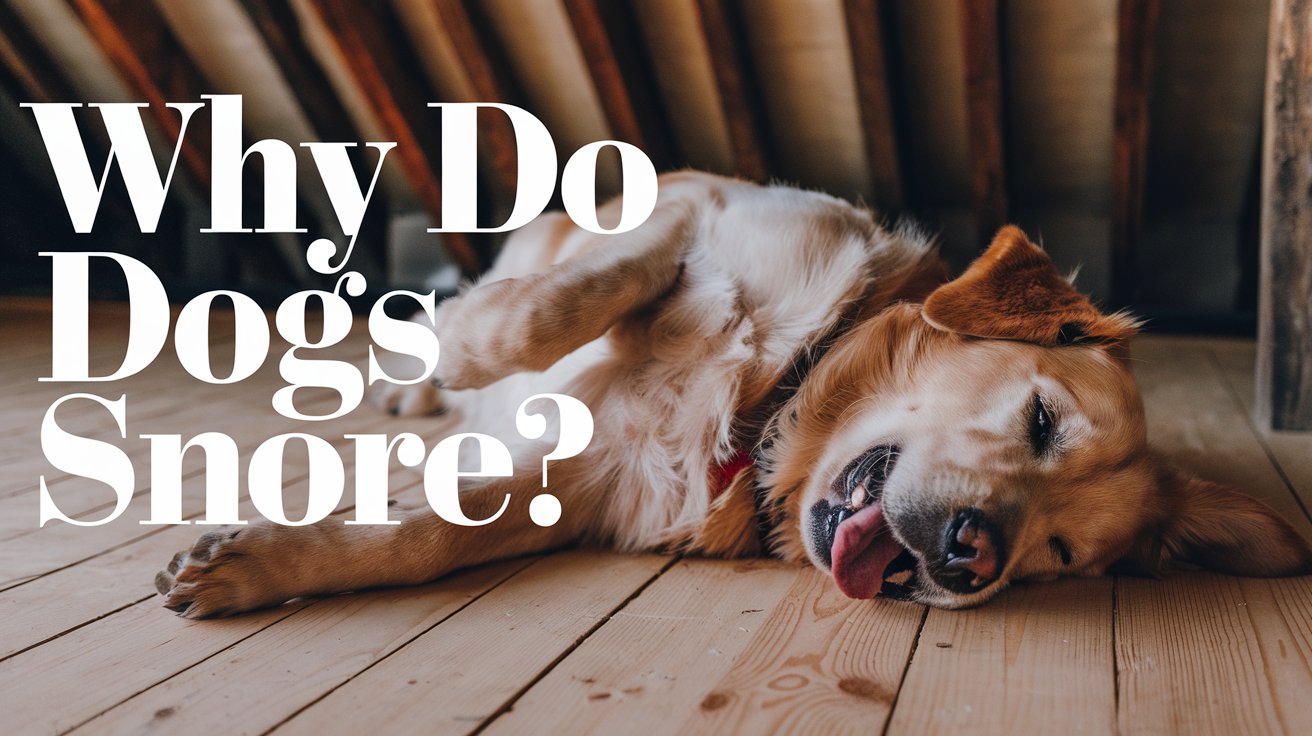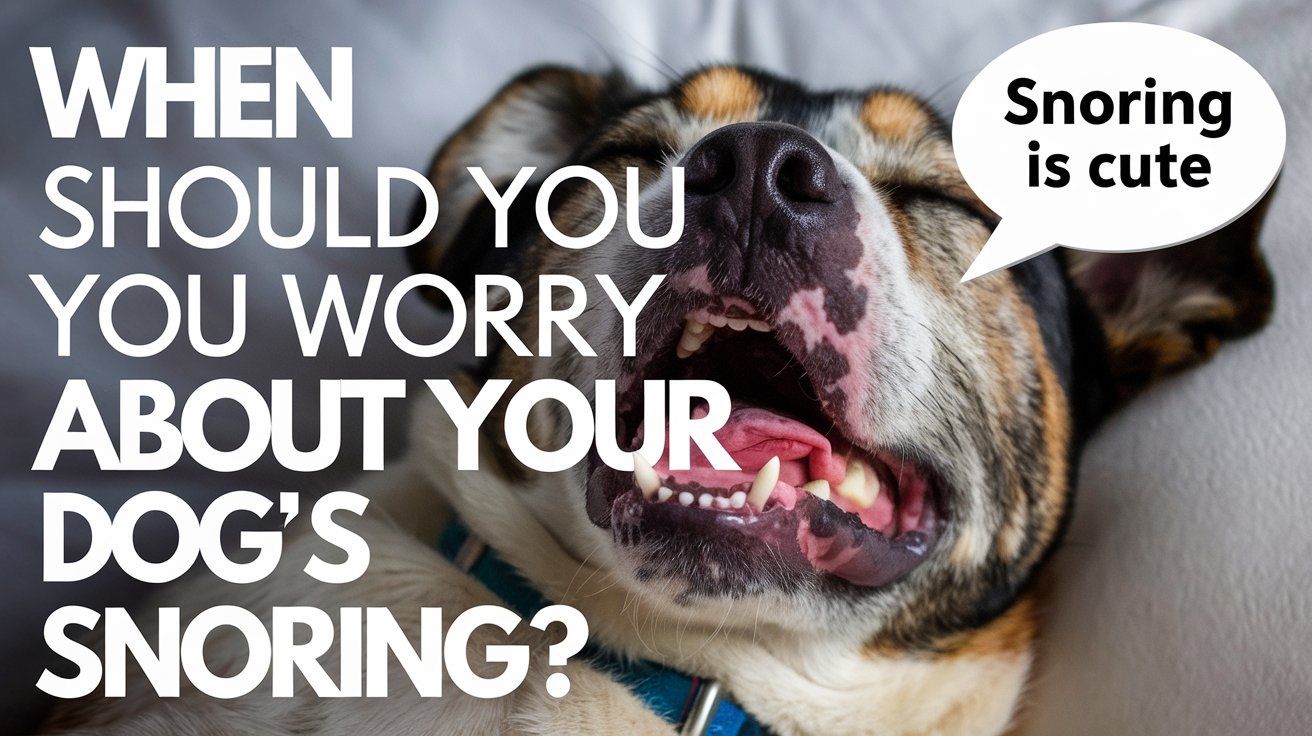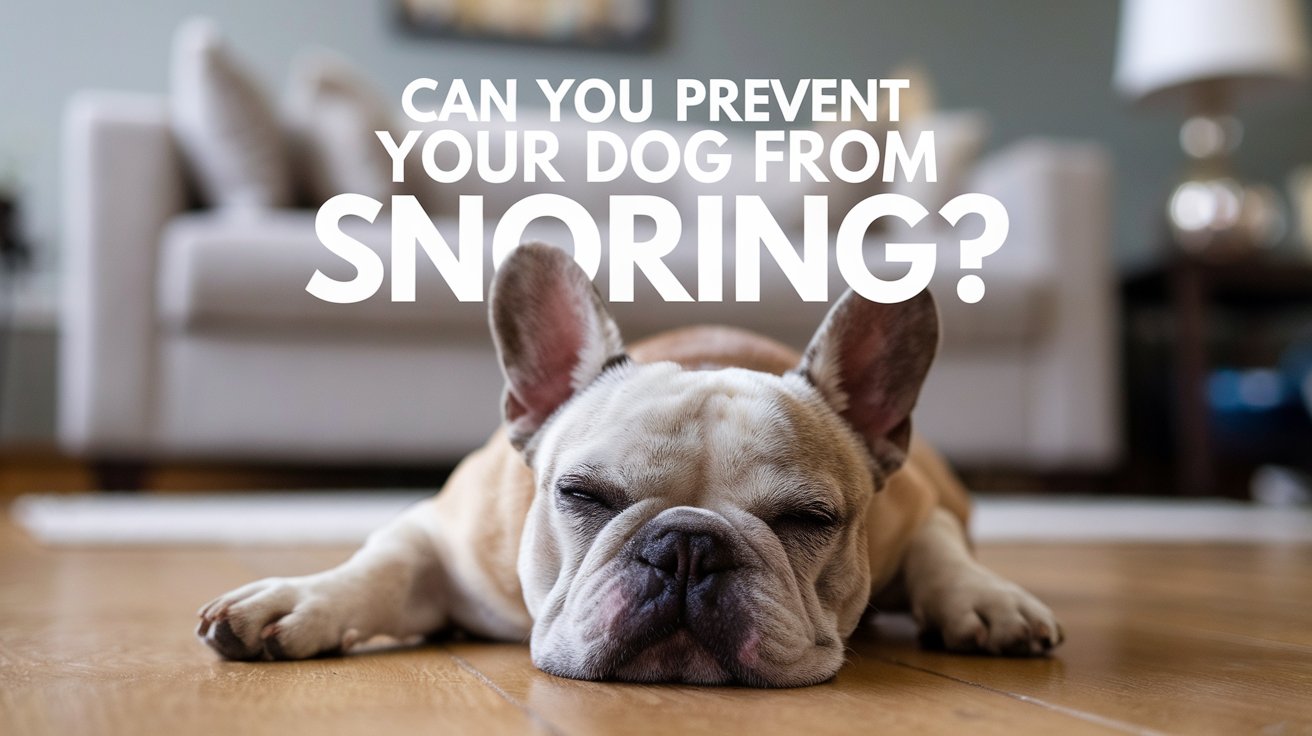
Why Do Dogs Snore?
If you’ve ever heard your dog snoring and wondered why it happens, you’re not alone. Snoring in dogs is common, but it can make pet owners curious or even worried. So, why do dogs snore? Understanding the reasons behind it can help you ensure your dog stays healthy and comfortable.
What Causes Dogs to Snore?
Snoring occurs when something blocks the normal flow of air through your dog’s nose and throat. This blockage causes the tissues in the airway to vibrate, leading to that familiar snoring sound. While it’s usually nothing serious, snoring can sometimes point to health issues.
Common Reasons Dogs Snore
1. Breed Type
- Flat-Faced Breeds: Dogs like Bulldogs, Pugs, and Boxers, which have short noses and flat faces, are more likely to snore. Their narrow airways make it easier for tissues to block airflow.
2. Being Overweight
- Extra Weight: If your dog is carrying extra pounds, it can cause snoring. The extra fat around the neck can put pressure on the airway, making it harder for your dog to breathe easily.
3. Sleeping Position
- Sleeping on Their Back: Some dogs snore more when they sleep on their backs. In this position, the tongue and throat muscles relax, which can block the airway.
4. Allergies
- Dust and Pollen: Allergies to things like dust, pollen, or mold can irritate your dog’s nasal passages, leading to snoring.
5. Nasal Blockages
- Something Stuck: Sometimes, a small object, like a piece of grass, can get stuck in your dog’s nose, causing them to snore.
6. Respiratory Infections
- Cold or Cough: If your dog has a cold or a respiratory infection, their airways might be swollen, which can cause snoring until the infection clears up.

When Should You Worry About Your Dog’s Snoring?
Most of the time, snoring in dogs isn’t a big deal. However, there are situations where it might be a sign of something more serious. Here’s when to pay closer attention:
1. Sudden Snoring
- If your dog suddenly starts snoring, or their snoring gets louder or more frequent, it might be time to check with your vet.
2. Breathing Problems
- Hard to Breathe: If your dog seems to be struggling to breathe, wheezing, or breathing very loudly, this could be a sign of a more serious issue.
3. Changes in Behavior
- If your dog is more tired than usual, seems uncomfortable, or is less active, their snoring could be related to a health problem.
How to Help Reduce Your Dog’s Snoring
If your dog’s snoring is keeping you up at night or seems to bother them, here are some tips to help reduce it:
1. Keep Your Dog at a Healthy Weight
- Helping your dog stay at a healthy weight through diet and exercise can reduce the chances of snoring.
2. Create a Comfortable Sleeping Space
- Make sure your dog has a cozy bed and sleeps in a position that helps them breathe easily, like on their side.
3. Reduce Allergens
- Keep your home clean and free of dust, pollen, and other allergens that might cause snoring.
4. Change Their Sleeping Position
- If your dog usually sleeps on their back, try encouraging them to sleep on their side instead.
5. Talk to Your Vet
- If your dog’s snoring doesn’t improve, or if you’re concerned, it’s best to consult with a vet. They can check for any underlying issues.
Health Issues Linked to Snoring
Sometimes, snoring can be a sign of a more serious health problem. These might include:
1. Sleep Apnea
- Pauses in Breathing: In overweight dogs, sleep apnea can cause temporary pauses in breathing during sleep, which can be dangerous.
2. Thyroid Problems
- An underactive thyroid can cause weight gain, leading to snoring because of increased pressure on the airway.
3. Respiratory Problems
- Conditions like bronchitis or asthma can make it harder for your dog to breathe, leading to snoring.

Can You Prevent Your Dog From Snoring?
You might not be able to completely stop your dog from snoring, especially if it’s related to their breed, but there are ways to reduce it:
1. Regular Vet Visits
- Regular checkups can help catch any health problems early before they cause snoring.
2. Healthy Lifestyle
- Keeping your dog fit with a good diet and regular exercise can prevent weight-related snoring.
3. Manage Allergies
- If your dog has allergies, treating them early can prevent snoring caused by nasal congestion.
When to Get Help
If your dog’s snoring is loud, constant, or affecting their quality of life, it’s time to see the vet. They can check for any serious conditions and recommend treatment if needed.
Conclusion: Why Do Dogs Snore?
Snoring is often normal in dogs, especially in certain breeds. However, knowing why dogs snore and keeping an eye on your dog’s health can help you ensure they’re comfortable and happy. By managing your dog’s weight, providing a good sleeping environment, and staying on top of their health, you can help minimize snoring and keep your dog healthy.
Frequently Asked Questions
Should you be worried if your dog snores?
You don’t usually need to worry if your dog snores, especially if it’s common for their breed. However, if the snoring is new, loud, or accompanied by breathing problems, it’s best to consult your vet.
Is a snoring dog a happy dog?
Snoring doesn’t necessarily mean a dog is happy or unhappy. It’s often just a result of their anatomy or sleeping position. However, if your dog seems uncomfortable, it’s worth checking in with your vet.
What does snoring mean in dogs?
Snoring in dogs usually means there’s a partial blockage of airflow in the nose or throat. It can be due to their breed, weight, sleeping position, or even nasal congestion.
How to stop a dog from snoring?
You can help reduce your dog’s snoring by keeping them at a healthy weight, reducing allergens, and encouraging them to sleep in a comfortable position, like on their side.
What do dogs dream about?
Dogs likely dream about their daily activities, such as playing, chasing, or interacting with their owners. Their dreams are believed to reflect their experiences, just like in humans.
Can Dogs Eat Cottage Cheese?

I’m Haseem Ali, a passionate writer focused on dog diet, health, training, lifestyle, and care. I’m dedicated to sharing expert advice and practical tips to help fellow dog owners provide the best for their furry friends. When I’m not writing, I enjoy spending time with my own dogs and exploring new pet-friendly activities.
